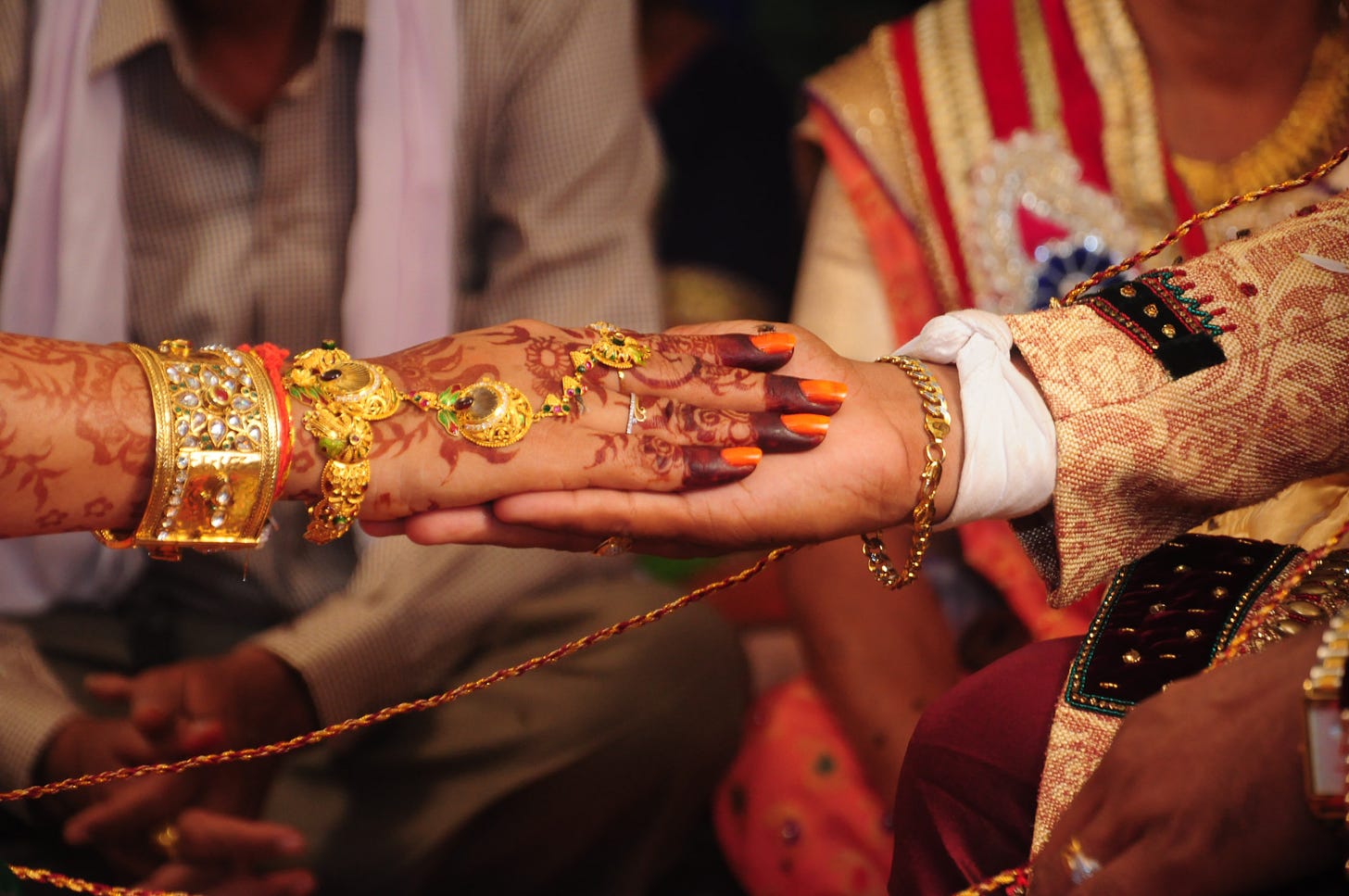The collective effect of my experience in India was one of time travel - I legitimately felt like a child again. Like a chubby ten-year old walking to the summer camp cafeteria, I would make my way downstairs for every meal at the top-notch restaurant in our five-star hotel, thanks to the generosity of the groom’s family who covered all trip expenses.
I continued to feel like a child as I prepared for my dance routine for the wedding, an experience that reminded me of rehearsing for the Christmas musical in grade school. Just like the kid-version of me back then, I was initially reluctant to go through the motions of rehearsal, but as I was dancing on stage in front of all the wedding attendees, I found myself enjoying the privilege of dancing offbeat with some of my closest friends.
These dance performances were a welcome departure from the formality of Western weddings. In the West, you have tearful vows exchanged, a promise made in front of God, and various rituals that all contribute to the gravity of the commitment being made. It’s as though every portion of a Western wedding is whispering This is a really big deal in the deep baritone of God as played by Morgan Freeman.
A wedding is, of course, a serious event about commitment, but ideally that commitment is also filled with joy, a joy that’s well represented with the dance performances and colorful attire at Indian weddings.
By the end of the trip, we were all asking each other what our favorite part of the trip was. Generally, people highlighted the early parts of the trip, which made a lot of sense.
At the beginning of any trip, there’s a sense of excitement about what’s yet to come. I remember having trouble falling asleep on my first night in India, not because of jet lag, but because my brain was racing through the scheduled itinerary for the rest of the week.
For me though, my favorite part of any trip is the end. For whatever reason, humans just do a better job of appreciating something when it’s about to die or end in some way. On our last night in India, just about everyone was flying out between the hours of 1am and 4am, and we all had this collective sense of awareness that this once-in-a-lifetime experience was coming to an end.
This shared awareness meant that the whole wedding party made the most of our remaining hours - taking shots at the hotel bar and tearing up the dance floor right up until a few minutes before the airport bus’ scheduled departure.
To me, there’s so much wisdom in endings. And beginnings too, actually.
To live well is to live in both ends of the spectrum simultaneously - it means to go about life with the awe of a toddler while also having the gratitude of a man who knows he only has months to live.
Throughout my time in India, it was easy for me to switch between these two viewpoints - every day, there was at least one event to be giddy about in the morning and thankful for in the evening.
Since I’ve been back to the States though, I’ve wondered how I can sustain these levels of excitement and gratitude in my normal day-to-day.
One answer comes from the Misfit, a villain in Flannery O’Connor’s A Good Man is Hard to Find. After shooting the protagonist of the short story - a morally ambiguous woman - the Misfit makes an attempt to eulogize her, “She would have been a good woman if it had been somebody there to shoot her every minute of her life.”
The optimistic version of the Misfit’s quote is this: we all would live life well if we had an Indian wedding to attend every week of our lives.





Damn dawg I was just gettin thru my post trip blues and you brought me right back. I miss you and I miss the trip. Dead ass man, felt like a happy kid again, you right though imma try to live like that on the regular